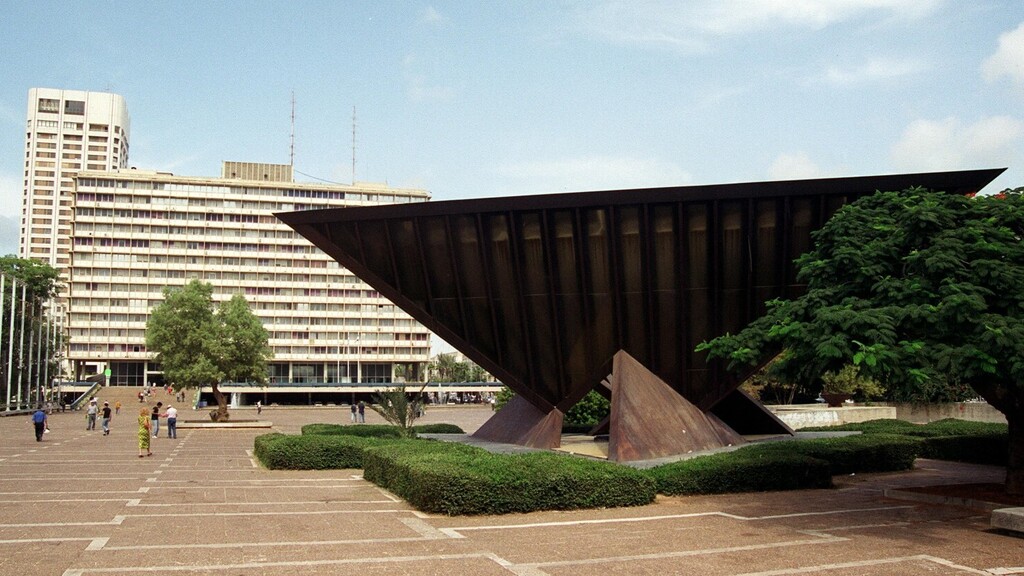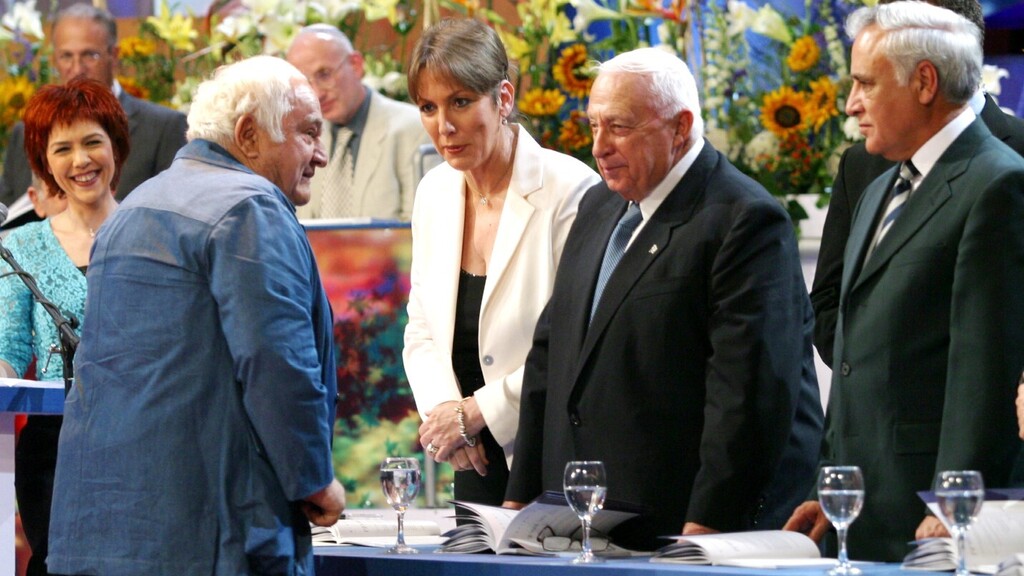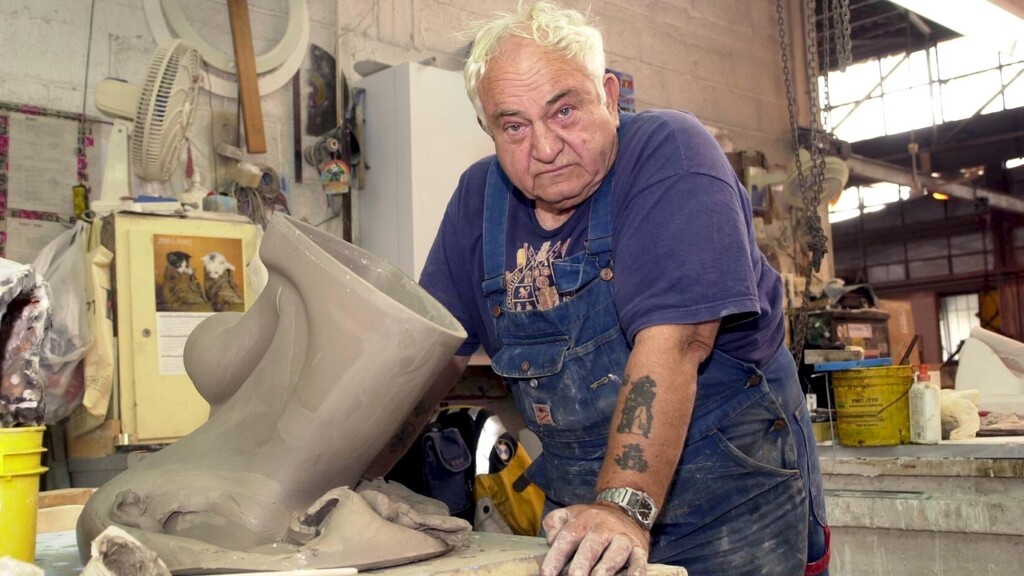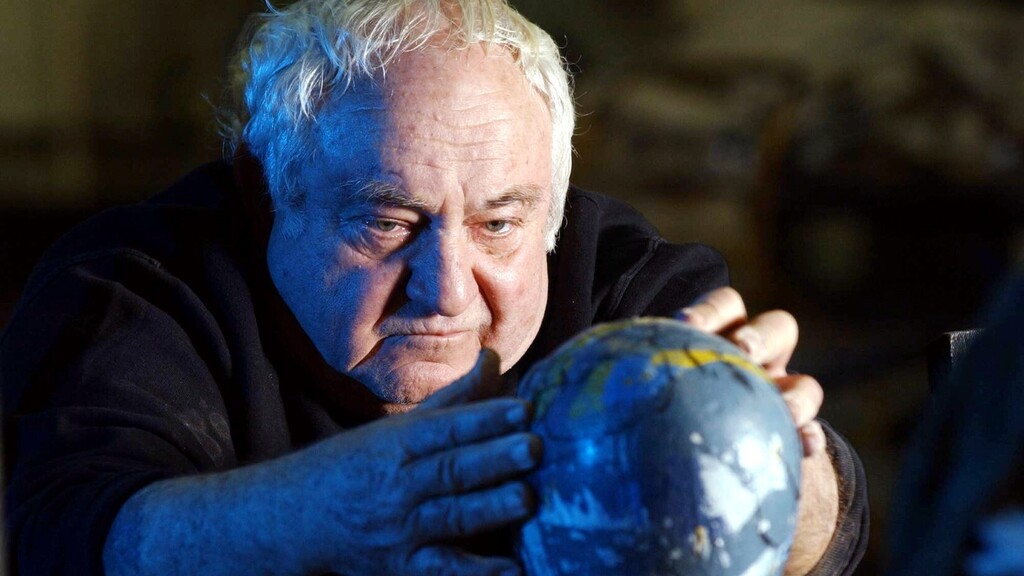Getting your Trinity Audio player ready...
World-renowned Israeli painter and sculptor Igael Tumarkin died on Thursday at the age of 87.
Tumarkin represented Israel in major International art shows including the Venice Biennale in 1964, the Sao Paulo Biennale in 1967 and the Tokyo Biennale in 1968. His artworks have been displayed in museums, galleries and sculpture gardens the world over and purchased for top buck by major private art collectors.
In 2004, Tumarkin was awarded the Israel Prize for his contribution to Israeli culture. The judges wrote "Tumarkin is one of the most important and original artists in modern Israeli sculpture. He has impacted the art of his contemporaries and his monumental works adorn the public sphere in many sites both in Israel and abroad."
Tumarkin was born in Dresden, Germany in 1933 and immigrated to British-ruled Palestine with his mother and stepfather when he was two years old. He only met his biological father, Martin Hellberg, an actor and director who was not Jewish, as an adult, in 1955.
Tumarkin studied sculpture with fellow sculptor Rudi Lehmann in Ein Hod before moving to Germany in his 20's where he began working with iron. He also worked as a set designer at Berlin's Bertolt Brecht Theater and later in the Netherlands. He would periodically return to work in theater in later years.
After moving to Paris in 1957, Tumarkin befriended members of the avant-garde Dada artistic movement. His works at the time were made of left-over industrial materials and discarded junk and were exhibited in his first solo exhibition.
Upon his return to Israel in 1961, Tumarkin pioneered environmental sculpture in Israel, placing his works in the desert as well as in urban settings. One of his most iconic pieces of work is the Holocaust and Resurrection sculpture which is located at Tel Aviv's Rabin Square.
4 View gallery


The Holocaust and Resurrection memorial by Igael Tumarkin at Rabin Square, Tel Aviv
(Photo: GPO)
Tumarkin's interest and involvement in Israeli politics and current affairs began in the early 1960s. He used weapons of war as material for his works and expressed his impressions on the connection that Jews and Arabs have to the land in his paintings, sketches and statues.
He became outspoken about his political views and almost faced criminal charges in 1980 after bringing a pig wrapped in phylacteries to a protest against West Bank settlements in Tel Aviv.
Tumarkin also never shied away from conflict with the local artistic establishment and upon receiving the Israel Prize, he said "I deserve this prize and I intend to accept it and that is that" despite outcries from some in the opposing political camp.
4 View gallery


Tumarkin receives the Israel Prize from then-Prime Minister Ariel Sharon in 2004
(Photo: Amit Shabi)
"An artist creates out of discontentment and not because he kisses up to those around him," he said, adding that he refused to be politically correct. "If I have something political to say, I will say it. I will not be silenced."
Later that year, he said he wanted to be judged according to his work and contribution to Israel, which he called "this miserable country."
Tumarkin was also a prolific writer and had published 11 books, including children's books and books about art history and architecture. He also published editorials in daily newspapers.
His son Yon, who like his grandfather is an actor, said his father had been in ill-health for a long while but his family was still surprised by his passing.
"I cannot believe this day has come," Yon Tumarkin told Ynet on Thursday.
Culture and Sports Minister Hili Tropper eulogized the late artist.
"Artist Igael Tumarkin, one of the leaders of Israeli sculpture and painting, passed away today, leaving behind works that will remain a testament to his talent, after decades of extensive work. I extend my condolences to the family," Tropper said.



